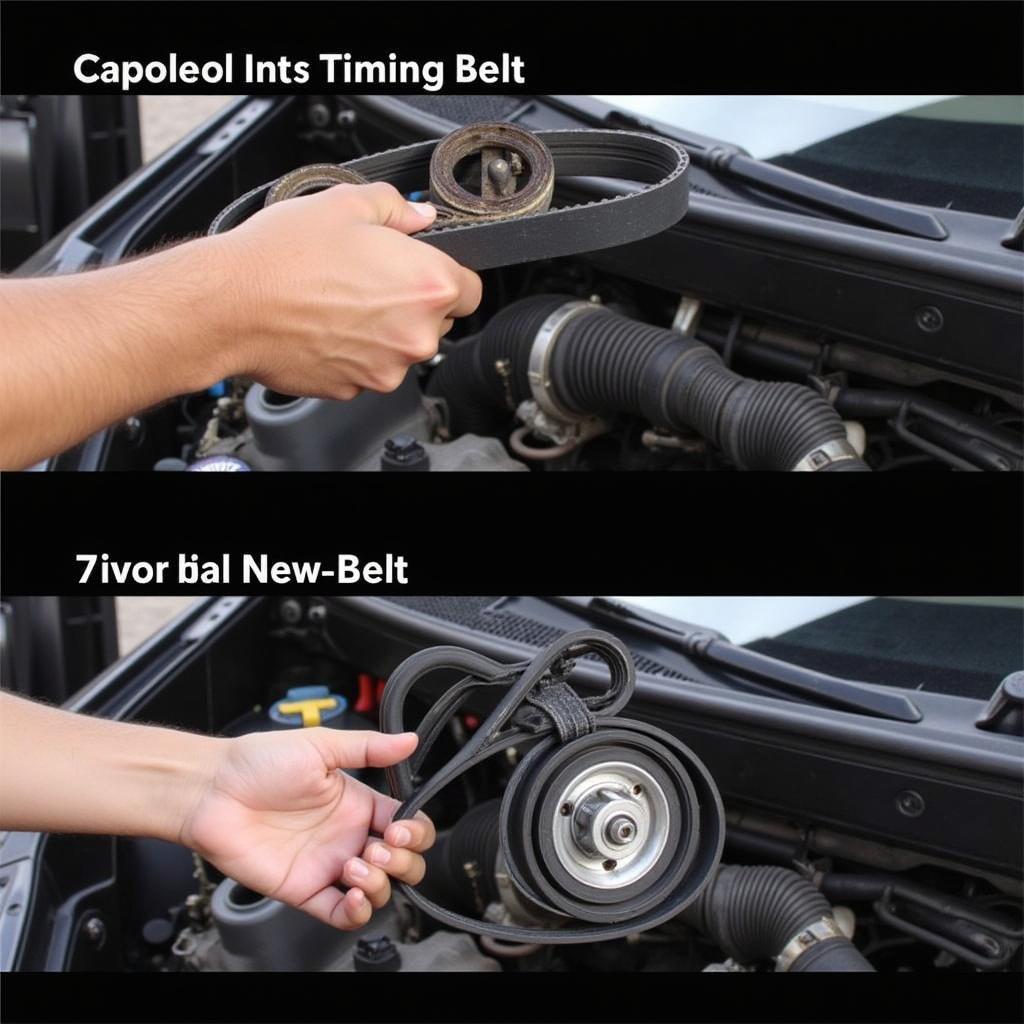Hitting the 100,000-mile mark on your car is a significant milestone. It also means your vehicle needs some specialized care. Knowing what maintenance does a car need at 100,000 miles is crucial for keeping it running smoothly and avoiding costly repairs down the road. This guide will walk you through the essential maintenance tasks for your 100,000-mile service.
Essential 100,000-Mile Car Maintenance
At 100,000 miles, your car is entering its senior years, but it doesn’t mean it’s ready for retirement. Proper 100,000 mile maintenance can extend its life significantly. This crucial service interval often includes some major maintenance items.
Timing Belt Replacement
One of the most critical 100,000-mile service tasks is often replacing the timing belt. This rubber belt keeps your engine’s valves and pistons synchronized. A broken timing belt can cause catastrophic engine damage, so it’s best to replace it preventatively. Consult your owner’s manual for the recommended replacement interval.
 Timing Belt Replacement at 100,000 Miles
Timing Belt Replacement at 100,000 Miles
Spark Plugs and Ignition System
At this mileage, spark plugs are likely worn out, leading to reduced fuel efficiency and performance. Replacing them with new ones will restore engine performance and improve fuel economy. It’s also a good time to inspect the ignition coils and other components of the ignition system.
What should I replace at 100k miles besides spark plugs? Often, other ignition components, such as wires and coils, are recommended for replacement or inspection at the same time.
Fluid Changes: The Lifeblood of Your Car
All fluids should be checked and changed if necessary at 100,000 miles. This includes engine oil, transmission fluid, coolant, brake fluid, and power steering fluid. Fresh fluids help protect your car’s vital components and keep them running smoothly.
Why is changing fluids important at 100,000 miles? Over time, fluids break down and lose their effectiveness. Replacing them ensures optimal performance and prevents damage to your vehicle’s systems.
Other Important 100,000-Mile Checks
Besides the essential maintenance tasks, other checks are crucial at this mileage:
- Suspension Inspection: Check for worn-out shocks, struts, and other suspension components.
- Brake Inspection: Inspect brake pads, rotors, and calipers for wear and tear.
- Exhaust System Check: Look for leaks or rust in the exhaust system.
- Fuel System Inspection: Check for leaks or damage in the fuel lines and fuel tank.
“Regular maintenance is like giving your car a vitamin boost. It keeps everything running in tip-top shape,” says John Davis, Senior Automotive Technician at Autotippro.
“Don’t wait for problems to arise before you take your car for service. Preventative maintenance is always cheaper than repairs,” adds Sarah Miller, Lead Mechanic at Autotippro.
Conclusion
What maintenance does a car need at 100,000 miles? This significant milestone calls for essential services like timing belt replacement, fluid changes, and spark plug replacement, along with comprehensive inspections. Following these guidelines will ensure your car stays on the road for many more miles. Contact AutoTipPro at +1 (641) 206-8880 or visit our office at 500 N St Mary’s St, San Antonio, TX 78205, United States for expert advice and assistance with your car’s 100,000-mile maintenance.







Leave a Reply